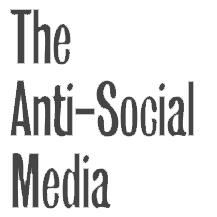Stop Pretending and Be Yourself Online
Today’s post comes from Brianne Villano. Brianne is a great writer,helps organize the awesome PechaKucha Night here in Raleigh, NC, and also runs Mindful Media Management.
Randy Constan is a 56 year-old jazz musician who lives in Tampa Bay Florida and one of the things he enjoys more than anything else is dressing up and presenting himself as Peter Pan. He designed this site to find his Tinkerbell and he most certainly found her. “Tink” is his new wife Dorothy Constan. They met at an event at the Suncoast Resort in 2006 and were immediately drawn together amidst a sea of satin-clad fairies and lacy water sprites.
The wedding ceremony took place on the grounds of Tampa’s Bay Area Renaissance Fair (”B.A.R.F.”) and included cross-dressers and pinky swears. It was officiated by King Henry VIII and as they spoke lyrics from Led Zeppelin’s “Thank You”, they exchanged rings. Following the service, there was some “fairy dancing” and I’m pretty sure the couple honeymooned “second star to the right, and straight on til morning.”
Wikipedia describes Peter Pan Syndrome as “an older man whose emotional life has remained at an adolescent level, usually coupled with too great a dependence on the mother.” I’ve always been called a “big kid” and I have to admit that I’m the first to gigglesnort if someone farts. But there is a big difference between someone who is emotionally unable to distance himself from that which makes him feel safe and comforted and someone who uses this one life as a chance to be filled with wonder and awe.
An adult can be responsible and still be able to enjoy the little things, the fun things, that life has to offer. When you stop having fun and merely aim to “get through it”, you lose a piece of your inner child. Randy respects and nurtures his inner child and tries to spread that knowledge wherever he goes.
While he and his site appear to be ostentatious and perhaps a little bit “wacky”, Randy takes donations that he receives for the site and money from sales of shirts and other items and donates them to various childrens’ charities. Just another reminder that looks are not everything and no one is ever truly what they seem.
Randy and Dorothy are proud of who they are and they create their own happiness. They don’t compare themselves with others in the rat race that even the quest for social media notoriety can sometimes become. They live and dance and pinky swear.
Sometimes you have to disconnect, stop living the majority of your life online, and start paying more attention to the richer, fuller life available to you offline.
Sometimes you just have to accept who you are and work with what you have, even if it involves green tights and fairies.






